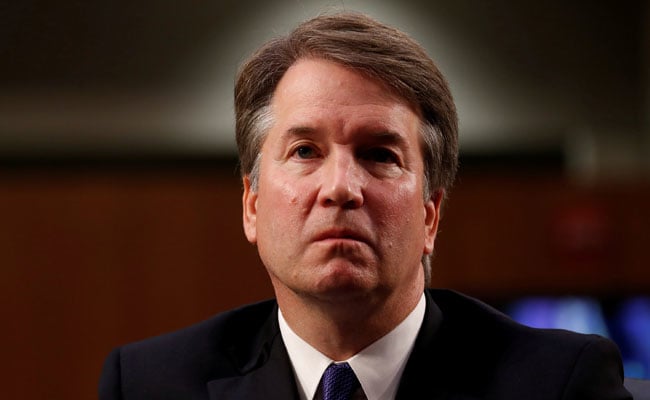 September 2018 was a dismal period in American History. More precisely in the scripting of the feminist American History. While Democrats and Republicans battled over Donald Trump’s nomination of Brett Kavanaugh, an ultra conservative Justice, to fill the vacant seat on the Supreme Court of the United States, the public had a front row ticket to a drama that was troublingly impactful on the lives of women.
September 2018 was a dismal period in American History. More precisely in the scripting of the feminist American History. While Democrats and Republicans battled over Donald Trump’s nomination of Brett Kavanaugh, an ultra conservative Justice, to fill the vacant seat on the Supreme Court of the United States, the public had a front row ticket to a drama that was troublingly impactful on the lives of women.
Senators on either side of the nomination asserted themselves in a battle that polarized the right of a woman to reveal the trauma she suffered through sexual exploitation years after the event. This was a demonstration of why so many women carry their personal stories in shame. Both the political and the legal frameworks of society are void of non-judgemental or supportive reactions to trauma. It continues to be a risk for a woman to speak her truth. Anita Hill in 1991 and Dr. Christine Blasey Ford in 2018 have publicly testified to that fact.
In examining the root cause for such an oppressive reaction from society one cannot even declare it stems from a patriarchal perspective because many women supported Brett Kavanaugh. They saw their sons, brothers, cousins and husbands in him and could not separate from protecting his interests. The same kind of support is afforded to other prominent men who are known to violate the rights of women.
When we examine our laws, there are none to govern the male body. Men don’t have to fight for the right to bear children or not to bear children. There are no legal control mechanisms for the male’s biological role in reproduction. Men have an assumed right to make their personal decision with no challenge from society regarding the function of their body.
Justice Clarence Thomas in the 1990s and most recently Justice Brett Kavanaugh were both appointed to the Supreme Court of the United States of America with a cloud of accusations of exploitation of women hovering over their reputations. Of all the legal minds in the land could there not be found two justices to occupy those seats that are so important to the interpretation of laws that affect women?
It seems unjust, if not callous, that these two notorious men are in positions of power to uphold or crush the ruling on Roe v Wade. Roe v. Wade, 410 U.S. 113, is a landmark decision issued in 1973 by the United States Supreme Court on the issue of the constitutionality of laws that criminalized or restricted access to abortions. The question remains, “Are the two aforementioned justices able to separate and control their documented animalistic outbursts when interpreting laws that govern women’s bodies and their lives?”
October 24, 1991 Justice Clarence Thomas assumed office. Twenty-seven years apart the same conversation repeated itself. October 6, 2018 Justice Brett Kavanaugh assumed office. Not many people remember the 1991 conversation and the “pass” that was given then. A month after Kavanaugh was given a “pass” not many people remember the drama either. Is a society with a very short attention span and memory lapses destined to continually repeat its injustices? It certainly puts women’s rights at risk when we forget so easily. Let us be vigilant moving forward for there are future hopes at stake.



